About us
Create a warm, secure and supportive enviroment where every child feels welcomed and belongs.
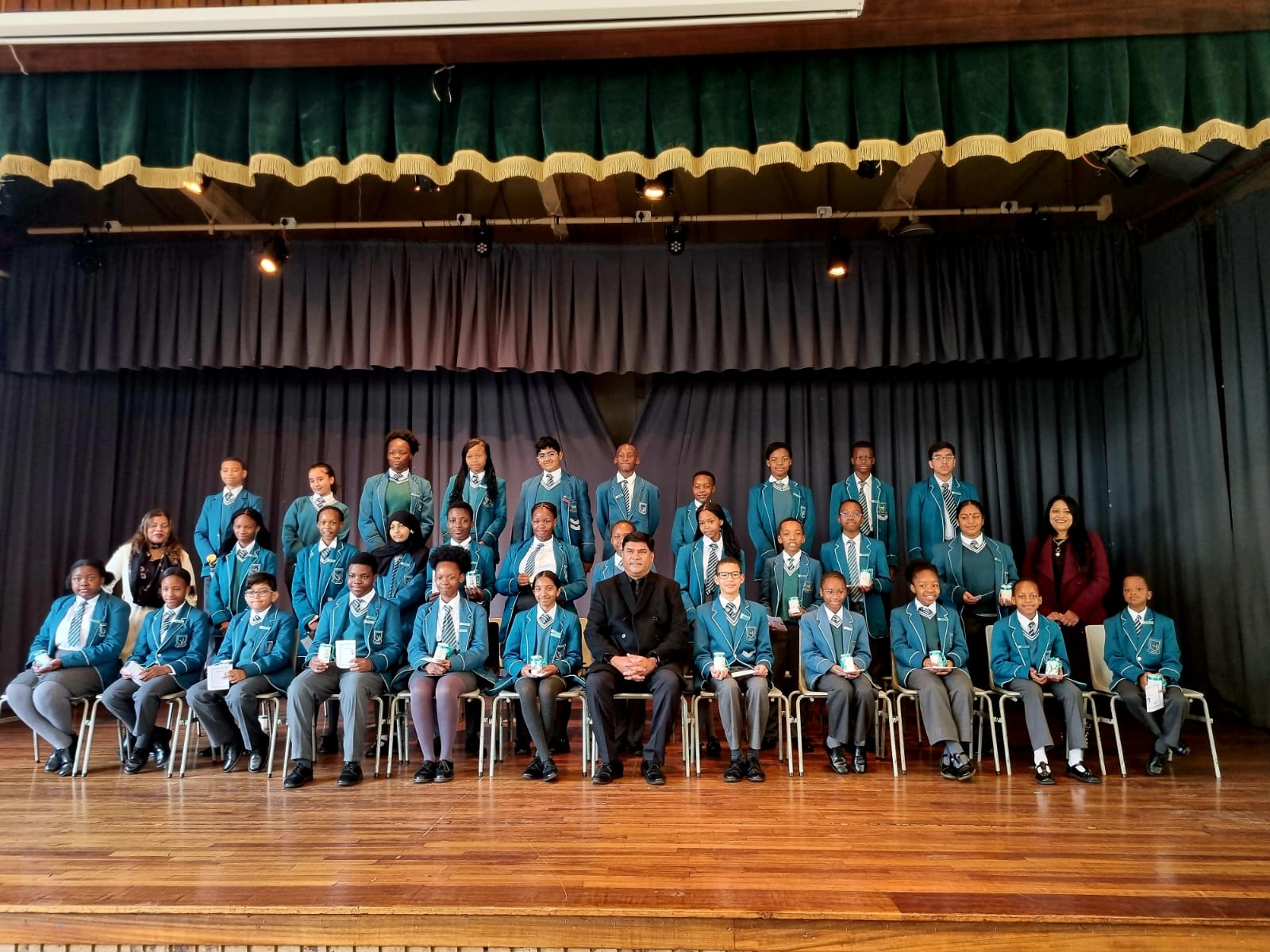
We all need support through the most important period of our children.
In 1992 a number of children were turned away from a neighbouring school due to lack of space. The parents formed the Mulbarton Parent Action Group to lobby for the building of a new school in Mulbarton.
In 1993 the first Grade 1 class was created and housed at Forest Hill Primary School. During May 1993 building started on the Junior Primary and Administration…
In 1992 a number of children were turned away from a neighbouring school due to lack of space. The parents formed the Mulbarton Parent Action Group to lobby for the building of a new school in Mulbarton.
In 1993 the first Grade 1 class was created and housed at Forest Hill Primary School. During May 1993 building started on the Junior Primary and Administration building. In 1994 the school opened for the Junior Primary phase and started with 81 learners. The buildings were finally completed in August 1994. In 1995 the school opened to all grades. By the turn of the century all classrooms were utilised with 700 learners.
In 1995 with so few learners and teachers, staff had their tea in the admin office at breaks because the staffroom was far too large and lonely. All the furniture was brand new – chairs, desks, table, sick-bay beds, all curtains, etc. The SGB chose the colour of the floor tiles, the colour of the walls and of course our school colours (teal), which turned out to be a lovely, unusual colour. Our motto is “Knowledge our Future” and our emblem is a Weaver bird chosen for its gregarious nature and because there are always weavers on our school grounds. The grade ones used to feed them sandwich leftovers every day. There was no shelter for our cars and quite a few staff members’ cars had serious hail damage one summer. We had no deputy principal as our learner numbers were too low to qualify for one. There were no grand stands – just embankments. The netball and tennis courts were brand new and the juniors played hopscotch on the ‘kunsblad’ outside the junior primary classrooms.
In 1999, the Grade R premises were built, consisting of three classrooms. The Grade 3 classrooms were erected in 2001. Since its beginnings there were numerous upgrades and refurbishings done to Mulbarton Primary School. Interactive Whiteboards, data projectors and a laptop for each classroom are some of the modern resources / equipment installed in every classroom, Today the learner enrolment is close to 1060 learners, with a staff compliment of 52.
The following Principals lead Mulbarton Primary at different periods since its inception:
| ° Mr. A. Goodwin | 1993 – 1996 |
| ° Mr. K. Lavery | 1997 – 2005 |
| ° Mr. C. Ranchor | 2006 – 2006 |
| ° Mr. J. Vonk (Acting) | 2006 – 2006 |
| ° Mrs. B. Dreyer | 2007 – 2008 |
| ° Mrs. S. Singh (Acting) | 2009 – 2009 |
| ° Mr. L. Kistadoo | 2010 – current |
The school aims to:
Create a warm, secure and supportive enviroment where every child feels that he/she is welcome and that he/she belongs;
Challenge each child to extend him/herself to the utmost of his/her potential in every aspect of the educational programme which he/she encounters;
Prepare each child towards entering into a rapidly changing South Africa where he/she will be able to make a meaningful contribution and to realise personal fulfillment;
Make each child experience a schooling that is demanding but is also immensely stimulating, personally enriching and enjoyable;
Inculcate values of courtesy, integrity, moral rectitude, perseverance and tolerance in each child.
Image
The image of the school is enhanced by our children being correctly dressed at all times. We appeal to parents to ensure that children wear our uniform with pride, respect and dignity. Learners are not permitted to wear only part of a uniform outside school grounds. Uniforms must be clean at all times.
Prefects
A teal blazer with braiding and the Mulbarton badge. Only prefects have the right to wear a prefect’s blazer. It is requested that prefects wear their blazer to school every day.
Summer Uniform
Boys
- Grey shorts
- White short sleeved open-neck shirt with school shirt badge on the pocket
- Regulation grey socks with white and turquoise stripe
- Black lace-up school shoes
- V-neck teal school regulation jersey
- Teal School Blazer
- ONLY GRADE 7 BOYS MAY WEAR LONG GREY FLANNEL PANTS DURING SUMMER
Girls
- School dress
- White school socks, no secret socks will be permitted
- Black school shoes
- Teal jersey with white stripes
- Plain teal school blazer
Winter Uniform
Boys
- Grey long flannel trousers, skinny style of pants are not permitted
- White long sleeved shirt
- Mulbarton tie
- Grey school socks ONLY, no secret socks will be permitted
- Black lace-up school shoes
- Teal school regulation jersey
- School blazer with school badge on the pocket
- Plain teal school blazer
- Regulation winter jacket
Girls
- School dress or long grey flannels, no skinny style of pants will be permitted
- A long sleeved white shirt and school tie
- Regulation school socks or grey tights, no secret socks will be permitted
- Black schools shoes
- Jerseys as for summer
- Teal school blazer may be worn
- Regulation winter jacket
Sport Track Suit
The new Mulbarton regulation tracksuit (black and teal) will be worn in winter only for sport and P.T with the regulation P.T T-shirt, white socks and black sports shoes only (tommies are not permitted). IT DOES NOT REPLACE THE COMPULSORY FORMAL WINTER OR SUMMER UNIFORM. Please note the formal uniform cannot be worn with the P.T uniform. (E.g. the regulation school jersey may not be worn with the P.T tracksuit)
Sport Uniform
- Physical education: All learners can come to school in the official PT kit on the PT days determined by the school.
- Each sport played has its own requirements and you will be advised accordingly.
- Please do not purchase muliticoloured, expensive sport shoes. Plain black is the colour for all sports codes.
Marking of Belongings
All articles should be clearly marked with the learner’s name. Any item of clothing not labelled and left in lost property will be donated to the school at the end of each term.
Hair
Girls
Long hair must be tied up or clipped back from the face. No half ponies allowed. Baubles, alice bands or ribbons must be teal blue, or white, no bows are allowed. No outlandish styles, colouring, highlights or gel will be allowed. No thick braids, no excessively big buns are allowed. Cornrows must be tied up if longer than shoulder length. Afros must be reasonable and neat.
Boys
Hair should be neat and of a reasonable length – regulation school boy cut. No outlandish styles will be allowed (e.g. steps or shaved portions, hair colouring, highlights, gel, braids or dreadlocks.) The school reserves the right to cut your child’s hair should your child’s hair not be in compliance with the school’s required hairstyle. The hair needs to blend in or fade into the rest of the hair.
Jewellery
No jewellery, apart from watches or medical bracelets and medallions, will be allowed. Girls with pierced ears may wear small, plain stud or sleeper earrings only. Boys may not wear earrings (nor pins or bristles in their ears) to school. We strongly urge parents not to allow boys to pierce their ears.
Official Uniform Stockists
- Mulbarton Outfitters: True North Road, Mulbarton
Tel: 011 682 2919 - Economic Outfitters: 21 Booysens Rd, Booysens
Tel: 011 493 2820 - Mulbarton Primary School Uniform Shop
Tel: 011 432 3288 # 2
Attending school should be a happy experience for a child. However, it may happen that a child may start to have a negative attitude towards the school. This could be evident through changed behaviour or a reluctance to attend school. Should this happen with your child, please contact the school immediately. Often unhappiness is cause through a misunderstanding. Close liaison between home and school virtually guarantees a happy education for your child. Try to organise your child’s day in such a way that he has sufficient time to do all that he needs to do. There must be time for resting, taking part in the extra-mural programmes, free time, home chores, television viewing, homework and the like. Time-management for the child make for a contented, well motivated and happy child.
It is inevitable that your child will experience minor disappointments at school. For example, his marks in a particular test might be lower than expected or he does not get selected for a sports team. At such times the child needs considerable positive encouragement. Highlight his areas of strength and dispassionately analyse why he does not achieve a particular target. Above all, remember the simple maxim: “Love your child unconditionally.” Your child is a wonderful person quite apart from any school achievements or disappointments.
Expect and insist that your child does the best that he is personally capable of doing. He should never be compared disparagingly to other family members, eg. “Your sister always does her homework properly!” Rather he should be compared to the standards that he – as a unique and very special person – is capable of achieving.
The Governing Body
The Governing Body is responsible for the general welfare of the school. The members are elected from the community and serve for a period of 3 years.
Appointments for Interviews
The professional staff appreciates and encourages contact between the parent and the school. Should you wish to have an interview with either a teacher or the Principal, Deputy Principal or Heads of Department kindly make an appointment. The teaching staff is understandably not available for interviews during school hours.
Books and Stationery
Most of the textbooks required by your child will be provided on free loan. (They are purchased by your school fee payments). Items of stationery, such as pens, pencils, mathematics sets, etc., are the responsibility of the parent. Textbooks which are issued by the school must be cared for with protective covers and the use of a sturdy school case. Homework diaries are available from the school.
School Fees
School fees are used for the maintenance of the school grounds, sports fields, buying of educational aids, textbooks, sports equipment, transports costs as well as additional teacher’s salaries in order to have smaller class sizes. It is only through the payment of school fees that we can offer the facilities and educational facilities that we have.
Therefore the payment of school fees is compulsory. You can make payment directly into the school account using your child’s account number or by using the debit or credit card facilities available at the school. There is also a discount available if fees are paid in full before a certain date.
The budget for the forthcoming year is developed by the school’s Finance Committee (sub committee of the Governing Body) based on past experience and future expectations. The budget and school fees are submitted to the Governing Body for approval. Once the budget and fees are approved they are submitted to the parent body at the Annual General Meeting.
The parents are required to approve the budget and school fees. Once this is done it becomes the official budget and school fees for the following year.
Uniform Shop
New and Second hand school uniform may be bought from the Uniform Shop. The Uniform shop is open on Mondays and Fridays from 07h30 to 09h00. Extended hours when needed will be communicated via the newsletter.
Learner Reports
The scholastic progress of your child is monitored throughout the year by a system of continuous evaluation. Although tests have a place in a child’s education, the school encourages assessment of a child’s progress as a whole.
Reports on learners progress are issued at the end of each term.
Discipline
A child who finds school work challenging, enjoyable and stimulating rarely misbehaves. Should there be minor infractions of school rules, the child may be obligated to attend a teacher-supervised detention class or do a chore in the classroom or school grounds.
The staff liaise closely with parents on matters of discipline. Home circumstances such as members of the family being hospitalised or experiencing marital problems, can have extreme adverse effects on a child’s behaviour. In such situations, please inform the school so that your child can be helped through possible emotional upsets.
In serious cases of misbehaviour, parents will be consulted and the possibilities of appearing before a Governing Body Disciplinary Committee will be discussed. (This committee can suggest suspension or expulsion as discipline measures). The school has a code of conduct (published in the homework diary) which every parent and learner is expected to sign and adhere to.
Absences from school
Special attention must be drawn to the serious consequences of irregular school attendance. It is important to remember that loss of time, through being excused early or being absent for half a day or longer, often proves to be a serious handicap to progress and tends to produce a lack of interest in school. Learners are expected to attend up to and including the last day of the year.
After any absence during the term a learner is required on his return to produce a note written by a parent or legal guardian giving the reason for absence. School attendance is compulsory and if it is impeded in any way the offender is punishable by law.
If a learner is absent for more than three continuous days a medical certificate is required.
Please inform the school if your child has an infectious disease.
Educational Day Trips and Tours
Education does not occur solely in the classroom. Accordingly, the children are occasionally taken on day trips to places of interest. The children from Grade 5 – 7 are furthermore invited to take part in educational tours which last from three to five days. Various leadership camps are also arranged in the senior standards.
Extra-mural Activities
The extra-mural participation by your child is an integral part of his education. Every child is encouraged to participate in at least one extra-mural activity. The programmes are varied and staff members responsible spend many hours seeing that our programmes run successfully. Activities for the year are circulated at the start of each term.
Newsletters
A newsletter is issued regularly to your child at our school. Please ensure that you read them in order to keep abreast of the life at your child’s school, latest educational news and matters of interest.
Tuckshop
A well-stocked Tuckshop is run during the breaks and after school. Only wholesome food is available at First Break. Items on sale as well as prices will be advised through the newsletters.
Homework
Parents are kindly requested to sign the homework diary daily. Homework teaches a child the necessary skills for independent study. It also consolidates the work done in the classroom.
A child in the Senior Primary Department (Grade 4 to 6) and Grade 7, may receive homework daily. The amount of time which should be allocated to daily homework is approximately thus:
Grade 4 and 5 – 30 minutes
Grade 6 – 45 minutes
Grade 7 – 60 minutes
Teachers give homework for a specific purpose and not “to keep learners busy”.
School Times
Grade R – 2 – 07h45 to 13h30
Grade 3 – 07h45 to 14h00
Grade 4 – 7 – Monday and Thursday 07h45 to 14h30
Tuesday and Wednesday 07h45 to 14h00
Fridays the entire school leaves at 13h30
Parents must ensure that children arrive before the bell rings.
All gates will be locked at 07h45 and any children arriving after that must sign the late register in the administration foyer. Regular late comers will be punished.
For the safety of the children, parents are asked not to drive into the school grounds.
If children are not participating in extra-mural activities or are part of the After-Care Centre there are no adults to supervise them or to ensure their safety after school hours. Any parent who envisages having a problem picking up their child must notify the school so that adequate arrangements can be made. The Governing Body, teaching staff, administrative staff or general assistants cannot be held responsible for any child whose parents do not comply with these provisions.
As the school does not have any sort of bus scheme it is the responsibility of the parents to ensure the child gets to school and back. The school cannot arrange such lifts.
Personal Information
It is compulsory to inform the office of any change in personal information such as change of address, telephone number, work number, etc. this information is invaluable in case we have to make contact with parents in an emergency.
Messages
Only in cases of extreme urgency should requests be made to the secretaries to deliver messages to children.
No cellphones to be brought to school. If it is an emergency, cellphones must be handed in to your child’s register teacher first thing in the morning and collected after school. Any learner caught with a cellphone will have the cellphone confiscated and a fine of R200 will have to be paid. This also applies to any other electronic device brought to school.
Aftercare Centre
An Aftercare Centre is run privately by the school and is co-ordinated by Mrs. Duma. For further information, please contact the Finance office.
Each child is placed in a house. These houses have various competitions against each other during the course of the year, such as athletics, cross country, Esprit de Corps, etc. Each house has a distinctive colour which learners will be expected to wear at these events. House T-shirts are available from the sockists.
The house are:
Weaver – Yellow
Kingfisher – Blue
Starling – Green
Red Bishop – Red
Newsletters
A newsletter is issued regularly to your child at our school. Please ensure that you read them in order to keep abreast of the life at your child's school, latest educational news and matters of interest.
The School Governing Body
The Governing Body is responsible for the general welfare of the school. The members are elected from the community and serve for a period of 3 years.
Uniform Shop
New and Second hand school uniform may be bought from the Uniform Shop. The Uniform shop is open on Tuesday and Friday from 07h30 to 08h00. Extended hours when needed will be communicated via the newsletter.
Vision
Mission
School
Managment Team

Principal

Deputy Principal

HoD - Intersen Phase
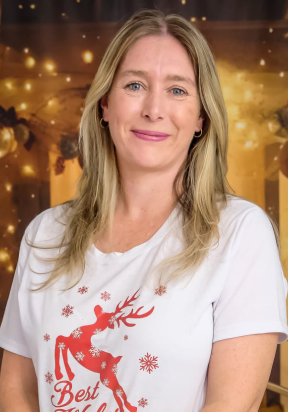
HoD - Intersen Phase
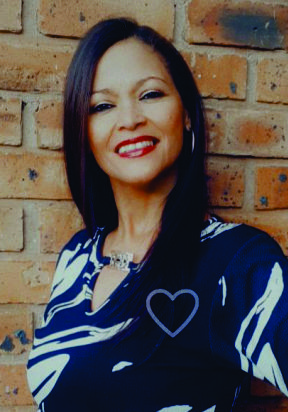
HoD - Intersen Phase
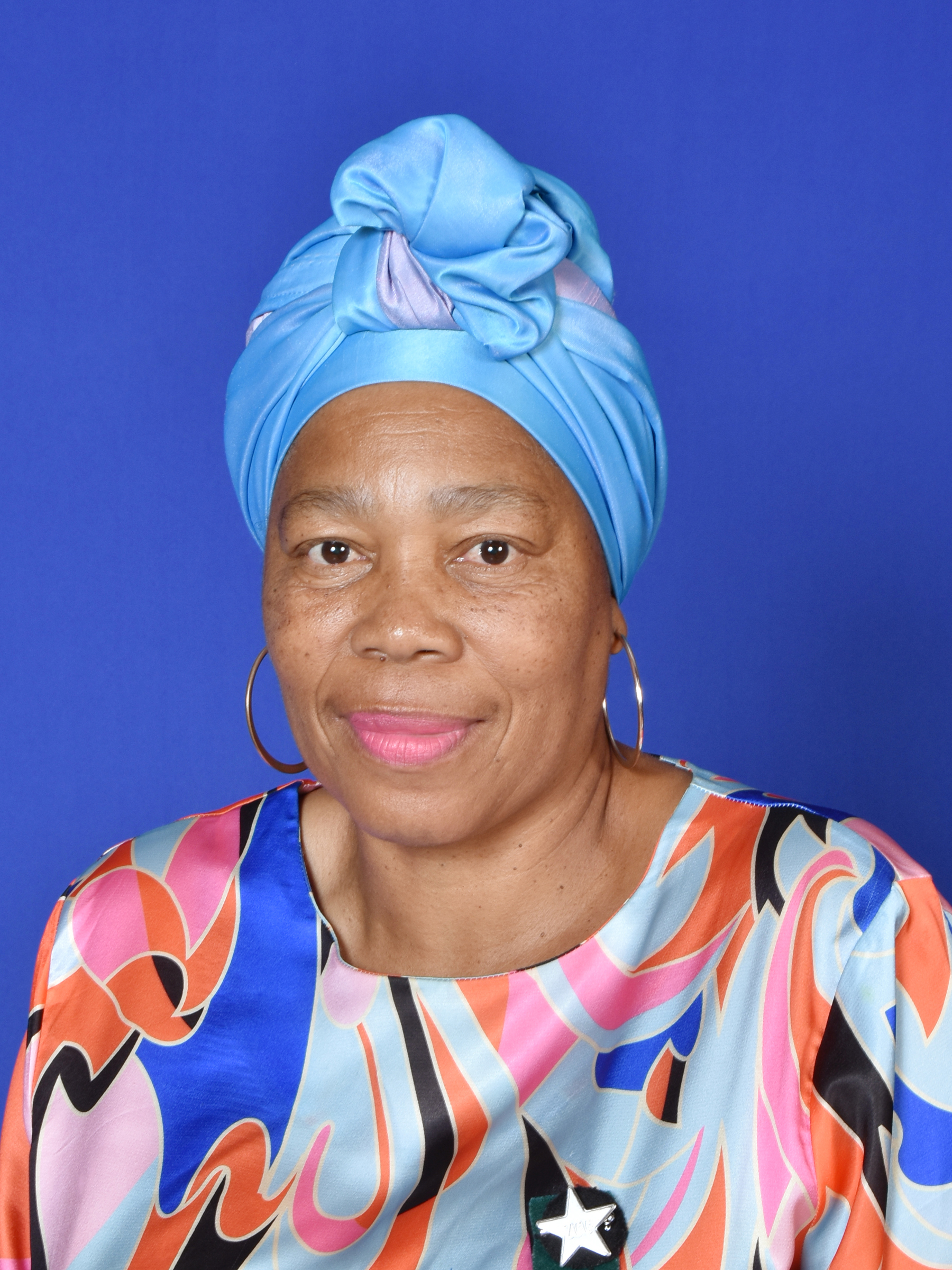
HoD - Foundation Phase
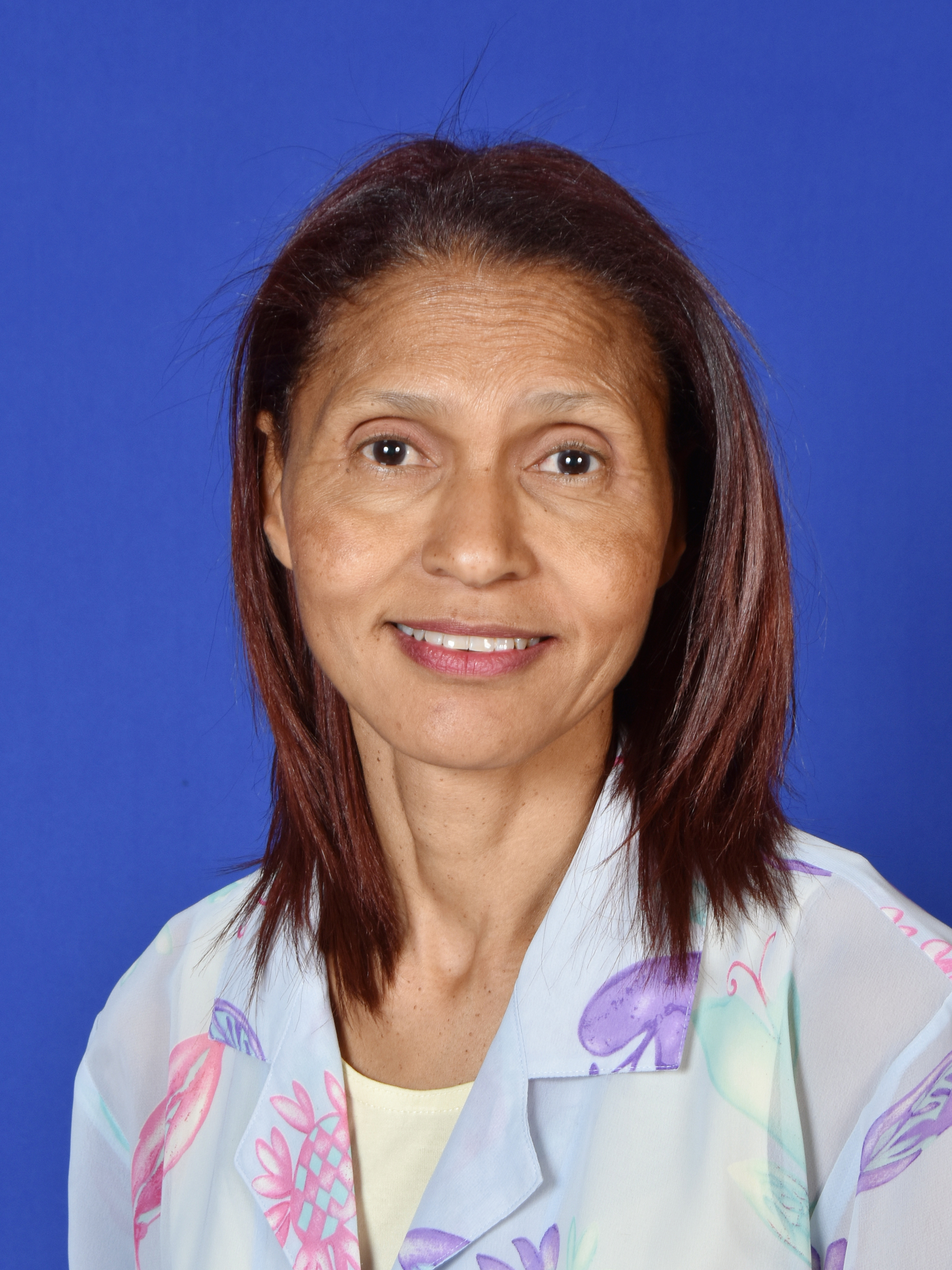
HoD - Foundation Phase
